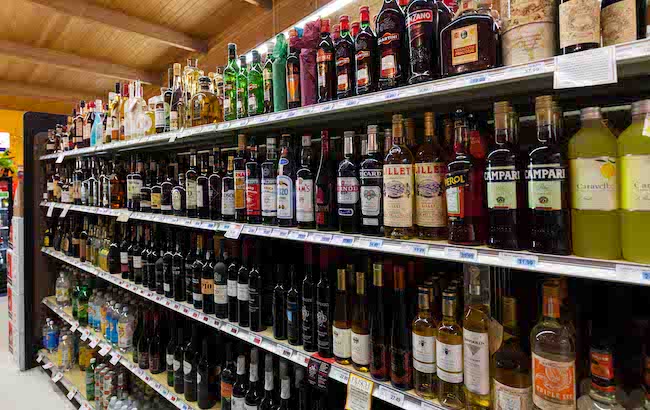A new database will test, compare and log alcoholic spirits to verify legitimacy.

A team of scientists have spent the past six months using lab-based techniques to detect the chemical fingerprint of hundreds of authentic spirits, including whisky and Tequila.
Their findings have now been published in a paper titled ‘Worldwide Illicit and Counterfeit Alcoholic Spirits: Problem, Detection, and Prevention’, found in the Journal of the American Society of Brewing Chemists.
The International Centre for Brewing and Distilling (ICBD) at Heriot-Watt University in Edinburgh, Scotland, worked alongside Dr John Edwards of Process NMR Associates in New York to find a more cost-effective way to test a spirit’s authenticity.
“At present, testing apparatus, methodology and human resources are ridiculously expensive, costing up to half a million or more pounds,” Michael Bryan, of the ICBD at Heriot-Watt, said. “And the analysis machinery is huge, they can be the size of a car or bigger. So, it’s a very difficult process and what I want to do is to take a different approach.”
A variety of analytical tools were used to build the database, including near infrared spectroscopy (NIR), ultra-violet visible (UV-Vis) spectroscopy, liquid chromatography (HPLC-DAD), and nuclear magnetic resonance spectroscopy (NMR). Once completed, the database will provide in-depth analysis of hundreds of legitimate spirits.
“Let’s transfer the heavy lifting from analytical services to comparative mathematics,” Bryan said. “By having a database of hundreds of spirits, outlining the legitimacy of a product, we can use less expensive techniques to sample a product.
“If it doesn’t meet those benchmarks, then we can quickly determine that it requires further analysis. This will ultimately save time and resources and ensure that we focus efforts on products that we suspect of being counterfeit.”
The World Health Organization estimates at least 25% of all spirits consumed are illicit, while other authorities, like the United Nations Conference on Trade and Development, place this figure at more than 40% in certain areas.
Counterfeit spirits pose a huge health risk, as some can contain harmful ingredients including aviation fuel or embalming fluid to increase alcohol concentration. Last year, Iran reported 14 deaths and at least 120 poisonings linked to counterfeit alcohol in the Alborz region in the northern part of the country.
As much as 33% of tested old and collected Scotch whisky is said to be counterfeit. In 2018, the Scottish Universities Environmental Research Centre tested 55 bottles of Scotch whisky that were old and considered rare, concluding that 21 bottles –or 38% – were fake, including every bottle allegedly from before 1900.
There is an economic impact to counterfeit spirits as well, with up to 23,400 jobs said to be lost. These spirits cost the EU around €3 billion (US$3.2bn) in lost revenue each year, according to the 2023 What’s Your Poison: The True Cost of Fake Alcohol and How to Catch the Culprits report.
“This paper defines the problems and highlights potential solutions and our continuing research aims to further increase awareness, and to develop accessible and affordable methods to enable wider detection and identification of illicit distilled spirit products,” said Professor Annie Hill, from Heriot-Watt University, the academic supervisor for the project.
The paper acknowledges that there is no single solution to counterfeit spirits, with tougher legislation and increased fines proving ineffective. It highlights the need for low-cost methods of authentication without the need to physically open a bottle. Counterfeit spirits are commonly sold through online marketplaces, social media, and black-market websites, making them difficult to regulate while providing the sellers with anonymity.
Tel: 07828778616
Email: info@hengzun-drinks.com
Add: 133a, Rye Lane, London, SE15 4BQ